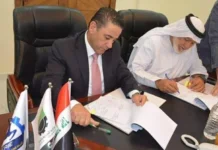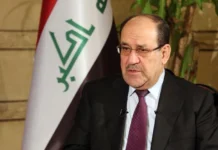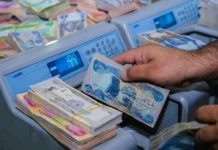Good Morning ,
US, UK to Collaborate on AI, Quantum Computing, Nuclear Energy Development
Washington and London strike a landmark tech pact, signaling a shift in global power competition.
A Strategic Memorandum with Global Implications
US President Donald Trump and UK Prime Minister Keir Starmer signed a memorandum of understanding (MOU) on Thursday during Trump’s state visit to the United Kingdom.
The agreement outlines joint development in artificial intelligence, nuclear energy, telecommunications, and quantum computing—all critical sectors shaping the next generation of global infrastructure.
While the MOU is not legally binding, its scope shows intent: joint research initiatives, interoperability standards, and even 6G development. At its core, this deal reinforces something larger—the restructuring of global finance and power through technology.
This is not just politics — it’s global finance restructuring before our eyes.
Quantum Computing and the Crypto Connection
One of the most significant elements is quantum computing. The US-UK task force will develop hardware, software, and algorithms with interoperability standards.
In the crypto world, this development is pivotal. Sufficiently powerful quantum computers could disrupt existing encryption models that safeguard digital assets. The fact that Washington and London are leading this race suggests they see control over quantum systems not just as a military or commercial advantage, but also as a tool to steer the future of money and security.
Here, technology and finance converge—innovation becomes a weapon in the struggle for financial dominance.
AI, 6G, and the Economic Power Play
Trump stressed the investment impact:
“This trip has galvanized $350 billion in deals across many sectors… We are committed to ensuring that the UK is a secure and reliable supply of the best AI hardware and software on Earth.”
With Trump also citing $17 trillion invested in the US over the last year, it’s clear that these technological pushes are part of a broader financial realignment strategy. AI and 6G networks will drive future trade, intelligence, and digital commerce—every piece reinforcing the dollar-led order in competition with BRICS and other rising blocs.
What looks like tech cooperation is, in fact, economic positioning in a financial restructuring already underway.
A Golden Nuclear Age
The announcement also highlighted collaboration on nuclear fusion—hailed as the potential future of limitless clean energy. By investing in advanced reactors, both the US and UK aim to secure energy independence, strengthening their supply chains and removing reliance on adversarial sources.
Energy security has always been tied to financial dominance. Control over nuclear and fusion tech means control over the backbone of industrial power, and ultimately, monetary leverage in a de-dollarizing world.
This is not simply about energy—it is about ensuring financial supremacy in the decades ahead.
Why This Matters
This memorandum may not yet change laws, but it maps out the architecture of tomorrow’s world order:
- AI, quantum, and 6G as control points for commerce and finance.
- Nuclear fusion as leverage over global energy pricing and reserves.
- Anglo-American coordination ensuring Western dominance in the technology-driven economy.
The deal is less about research labs and more about shaping financial and energy flows in the decades ahead.
Key Takeaway: Washington and London are aligning to secure the technologies that underpin global finance and security. What looks like a science partnership is actually an economic and monetary power play.
This is not just politics — it’s global finance restructuring before our eyes.
@ Newshounds News™
Source: CoinTelegraph
~~~~~~~~~
White House Eyes Other Candidates for CFTC Chair as Quintenz Confirmation Stalls
Crypto regulation takes center stage as Trump weighs new leadership at the CFTC.
A Search for Leadership in Uncertain Times
The Trump administration is actively considering backup candidates for the Commodity Futures Trading Commission (CFTC) as Brian Quintenz’s confirmation remains stalled. Bloomberg reports that potential contenders include officials with cryptocurrency regulation expertise, reflecting how central digital assets have become in U.S. financial policy.
This is not a simple personnel shuffle. It reveals that the administration views the CFTC chairmanship as a critical post in shaping the regulatory and financial framework of the digital economy.
The CFTC’s Expanding Role in Digital Assets
Congress is currently developing legislation to expand the CFTC’s powers over crypto markets, cementing its place as one of the most influential agencies in digital asset oversight. Unlike the SEC, which has leaned heavily on enforcement, the CFTC is being positioned to act as the market’s stabilizer—regulating derivatives, spot markets, and systemic risks.
This is where the financial restructuring angle emerges: whoever leads the CFTC will effectively steer how crypto integrates into the broader financial system. Decisions on derivatives approvals, stablecoin oversight, and futures markets all tie back into how money flows globally.
Political Drama Meets Financial Power
Quintenz, Trump’s nominee, has faced resistance both in the Senate and within the crypto industry itself. Notably, the Winklevoss twins—staunch Trump supporters and key crypto financiers—have openly opposed him, arguing that his approach is out of alignment with the administration’s policy.
The dispute intensified when Quintenz alleged that the twins lobbied against his nomination after he declined to pursue Gemini’s complaint against the CFTC staff. This clash isn’t just personal; it highlights the tug-of-war between regulators, industry players, and political powerbrokers over who gets to shape the rules of the new financial order.
Why This Matters
The CFTC chair isn’t just another Washington appointment. In 2025, the position will define:
- How crypto assets are classified and traded in U.S. markets.
- Whether derivatives and futures tied to tokens like XRP, Bitcoin, and stablecoins expand liquidity globally.
- How America positions itself in the race against BRICS nations building parallel financial systems.
The chair’s decision-making will ripple far beyond U.S. borders, influencing whether digital assets strengthen or weaken dollar dominance in the global economy.
Key Takeaway: The stalled nomination underscores how crypto regulation has become inseparable from the contest over financial power. Choosing the right CFTC leader is less about politics and more about setting the foundation of tomorrow’s monetary system.
This is not just politics — it’s global finance restructuring before our eyes.
@ Newshounds News™
Source: The Block
~~~~~~~~~
Seeds of Wisdom Team RV Currency Facts Youtube and Rumble
Newshound’s News Telegram Room Link
Follow the Gold/Silver Rate COMEX
Follow Fast Facts
Seeds of Wisdom Team™ Website






